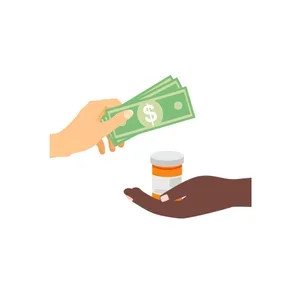We know that, as pharmacists, we impact our patients’ lives. We know we make a difference (even if some days it seems hard to feel that way). But have you ever thought about the magnitude of impact your pharmacy knowledge could have in underserved populations or disaster areas? Did you know that being helpful on a global scale is in fact accessible? Come hear about one pharmacist’s journey to fulfilling a dream of international impact.
We often learn about pregnant women as a special population when it comes to pharmacotherapy, but breastfeeding kinda gets shoved to the side. So today we’re rectifying that. Let tl;dr give you the need to know info on breastmilk and how medications interact with this true superfood.
Anticoagulation is an area of high impact for pharmacists.
And so that means we've gotta spend some time learning about it. In this guide, I'll break down the pharmacology of all things anticoagulation.
No doubt we all remember painstakingly memorizing counseling points for the top 100 medications, including which ones should not be used with grapefruit. However, is grapefruit really enemy number 1 on the no fly list? What factors might influence the severity of its effects? Come dig into this food-drug interaction so that you are better armed to make clinical judgments!
They’re like that Oprah meme…beta blockers for you, You, and YOU! They’re literally everywhere, used for every indication under the sun. But what happens when a person gets too much beta blockade, and how do we manage the resulting toxicities? Let tl;dr give you the rundown on another good drug gone bad situation of beta blocker overdose.
We all like dispensing eye drop prescriptions because they don’t require counting and are easy to check. But how often do you stop to really consider what these medications are and why they’re being prescribed? Let tl;dr pharmacy take you on a brief detour down Eye Drop Lane so you can familiarize yourself with these frequently used medications.
You’re working in the pharmacy. A patient comes up to the counter with 4 different versions of bone and joint health supplements and asks you, “Which one should I take? Will it help my osteoporosis?” Instead of succumbing to that lost feeling (or worse, the “I’m too busy for this, just pick one” reaction), wouldn’t it be nice to have some tools at hand to figure out an appropriate recommendation? We think so too! Let tl;dr give you some need to know info about navigating herbals and supplements.
Everything you need to know about how to study for (and pass) the biggest exam standing between you and the title "Pharmacist."
You see the order: "IV antibiotics for 6 weeks." Your pharmacist brain floods with thoughts of PICC lines and complex kinetics. Osteomyelitis isn't just an infection; it's a long-term clinical nightmare that can feel overwhelming to manage. If you’ve ever felt that way, you’re in the right place. Let tl;dr give you the tools you need to confidently tackle this stubborn bone infection.
We’ve previously given you our best tips for passing the NAPLEX on your first try. We even have a post specifically about the California pharmacy law exam. But what we haven’t tackled yet is formulating all our collective knowledge into one post about how to pass any MPJE on the first try. Well, tl;dr friends, today is the day.
Have you ever looked at a paid claim and felt that tiny sigh of relief, only to realize months later that you actually lost money on that exact prescription? If that frustrating, upside-down math makes you want to tear your hair out, you're not alone. Let tl;dr break down the black box of PBM reimbursement and give you the tools to understand the fight for your pharmacy’s survival.



















These days, oseltamivir goes hand in hand with the flu, much like Christmas cookies and Santa. But what’s the actual evidence for this? Does the original data still stand? And if you are going to start this treatment, does timing matter? Learn about all these questions and more in this seasonal post on the seasonal flu.